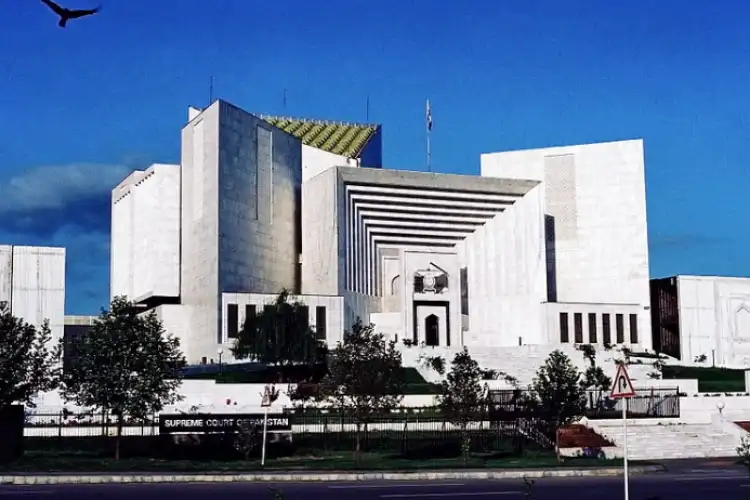
Shantanu Mukharji
In a dramatic and bold move on November 30, the Chief Justice of Pakistan Gulzar Ahmed pulled up the Army for carrying out commercial activities on the government land and describing this illegal. The CJP’s indictment came during the hearing of a petition about allegations of the abuse of cantonment land by the military. He asked the propriety of the Army’s discretion in running cinema and wedding halls, schools, and housing, unrelated to defense needs.
The Chief Justice ordered the demolition of several structures that serve no Military purposes on the cantonment land. These include movie theaters, petrol pumps, housing societies, shopping malls, etc.
Justice Ahmed categorically condemned the existence of the Canteen Stores Department (CSD) which is being run as a commercial department outlet. Such a remark coming from the head of judiciary amounts to hinting hard at the CSD Headquarters at Rawalpindi.
The CJP observed that it's not possible to allow the Army’s illegal constructions to remain untouched because if the military structures are not demolished, it would be difficult to act on all other illegal constructions. The Defense Secretary, Lt Gen (Retd) Mohammed Hilal Hussain, offered poor defence as his report to the court turned out to be false, feeble and unconvincing. The bench that is hearing the petition also included Justice Qazi Mohammed Amin Ahmed and Justice Ijazul Ahsan; they were equally acerbic in their remarks against the military.
The court directed the Defence Secretary to submit a compliance report within four weeks and it must identify the purposes of each piece of cantonment land.
The Defence Secretary’s defense that such constructions were for “strategic defenses” fell flat and made no sense. The Chief Justice told the Army that force is for the country’s defense; not for doing business. It was rather a harsh comment.
The CJP’s articulations on this important case are bound to hit the omnipotent Pakistan Army’s image. The judiciary seems to have shown the military its place, albeit for the time being. It’s perhaps the first-ever head-on clash between the Judiciary and the Pakistani Army. Pakistan’s Judiciary is often accused of being politicized and biased. However, by taking a bold stand against the Army’s wanton misuse of authority, it must have redeemed itself to some extent.
The civilian government of Prime Minister Imran Khan, often alleged to be working under the diktat of the army, must also be watching the developments with interest and curiosity. However, some segments in the civilian dispensation are believed to be happy that the judiciary has locked horns with the Army as the Imran Khan government seems toothless to deal effectively either with the Army or the judiciary.
Also Read: Will Gwadar prove to be a Waterloo for the CPEC?
Thus, the situation appears peculiar and at the end of four weeks, the country might witness some very tumultuous events. As it is, the Pakistani government is already besieged by multiple challenges threatening its existence including rising political adversity, economic collapse, the Afghan problem, the US treating Pakistan like a pariah state etc adding to the government and military’s woes. All these challenges make Imran Khan’s political existence tougher than before.
In a separate development, a section of the Pakistani media has welcomed the government’s decision to open its borders for Indian wheat shipment to Afghanistan and acceptance of the same by the Afghan Taliban. According to political commentator, Kamran Yousaf (Express Tribune – November 29), Pakistan's permission to India for wheat transportation through Wagah Border highlights an exceptional gesture for Afghans who are in desperate need of food supplies. The commentary underlines that despite a series of bilateral irritants between India and Pakistan, both countries have exhibited that they can cooperate on the issue of Afghanistan which is a very welcome development. The writer, on an optimistic note, assesses that despite uneasy relations, India and Pakistan can join hands for a humanitarian effort as seen by India’s fresh initiative to address the starvation crisis in Afghanistan.
(The writer is a retired IPS officer, a security analyst, and a former National Security Advisor to the Prime Minister of Mauritius. Views are personal)
